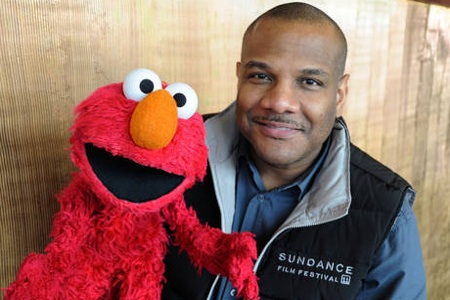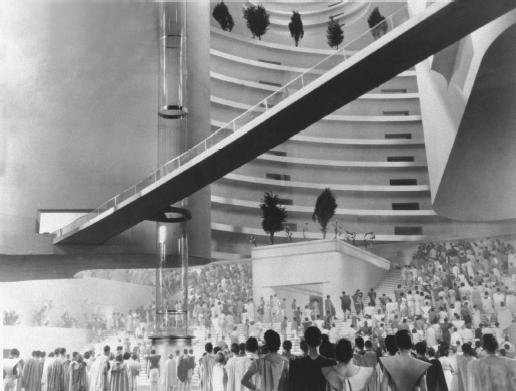The Scent of Green Papaya (1993) directed by Anh Hung Tran
The Scent of Green Papaya is a about a young peasant girl who is sent off to work for a merchant family. The girl, Mui, works endlessly serving the house while quietly observing the daily lives of the family. We see the film through her eyes and ears giving the movie a sense of nostalgic beauty. We watch Mui study her lush surroundings to the most minute detail, from tiny ants and crickets to frogs in the courtyard and drops of water falling on top of a leaf. She is a curiously observant child, attentive to her surroundings and those around her.
She is a good worker and gains the favor of the mistress of the household who grows to view her as a daughter. We find out that the mistress has lost her own daughter who would be about the same age as Mui now. The mistress is in charge of the family business while the husband often takes off at days at a time with all their money, boozing and womanizing until it is all gone. The grandmother of the house sits in her room and prays all day ever since the loss of her granddaughter.
It is hard to say I really enjoyed this film because it is such a slow and moody movie with a pretty minimalistic plot. We just watch the days go by in their lives as they do their daily routines. There is no real conflict or drama, just ordinary people living their ordinary lives. Much of the appeal of the film is in its restrained drama and its artistic vision. It is beautiful to look at and has a quiet beauty and sadness to it.
I suppose you could also call it a romantic film. The most heart warming scenes for me was when the old man confessed to young Mui his devoted love for the old grandmother of the house. He has loved her faithfully for the last seven years with no response. Mui encourages him to go up to the grandmother's room to take a look at her and when he does his face lights up and that is it. A simple glance is all he needs. The latter third of the movie when Mui is ten years older she is now working for a friend of one of the mistress's sons. There is a silent romance in the film highlighted by the man's piano playing. The latter parts of the film is almost entirely silent as we can observe the romance unfold with the music dictating the mood. I actually did not care that much for this part and much preferred the film when Mui was a younger child despite the plot being at a bare minimum. It seemed like a much more innocent and nostalgic time. Now that she is all grown up, the loses much of that feel and becomes more of a cliched romance. Overall this film may not be for everyone because of its slow pace, but it is an artistic vision that can be appreciated like poetry.
Grade: B
The Scent of Green Papaya is a about a young peasant girl who is sent off to work for a merchant family. The girl, Mui, works endlessly serving the house while quietly observing the daily lives of the family. We see the film through her eyes and ears giving the movie a sense of nostalgic beauty. We watch Mui study her lush surroundings to the most minute detail, from tiny ants and crickets to frogs in the courtyard and drops of water falling on top of a leaf. She is a curiously observant child, attentive to her surroundings and those around her.
She is a good worker and gains the favor of the mistress of the household who grows to view her as a daughter. We find out that the mistress has lost her own daughter who would be about the same age as Mui now. The mistress is in charge of the family business while the husband often takes off at days at a time with all their money, boozing and womanizing until it is all gone. The grandmother of the house sits in her room and prays all day ever since the loss of her granddaughter.
It is hard to say I really enjoyed this film because it is such a slow and moody movie with a pretty minimalistic plot. We just watch the days go by in their lives as they do their daily routines. There is no real conflict or drama, just ordinary people living their ordinary lives. Much of the appeal of the film is in its restrained drama and its artistic vision. It is beautiful to look at and has a quiet beauty and sadness to it.
I suppose you could also call it a romantic film. The most heart warming scenes for me was when the old man confessed to young Mui his devoted love for the old grandmother of the house. He has loved her faithfully for the last seven years with no response. Mui encourages him to go up to the grandmother's room to take a look at her and when he does his face lights up and that is it. A simple glance is all he needs. The latter third of the movie when Mui is ten years older she is now working for a friend of one of the mistress's sons. There is a silent romance in the film highlighted by the man's piano playing. The latter parts of the film is almost entirely silent as we can observe the romance unfold with the music dictating the mood. I actually did not care that much for this part and much preferred the film when Mui was a younger child despite the plot being at a bare minimum. It seemed like a much more innocent and nostalgic time. Now that she is all grown up, the loses much of that feel and becomes more of a cliched romance. Overall this film may not be for everyone because of its slow pace, but it is an artistic vision that can be appreciated like poetry.
Grade: B














_03.jpg)








